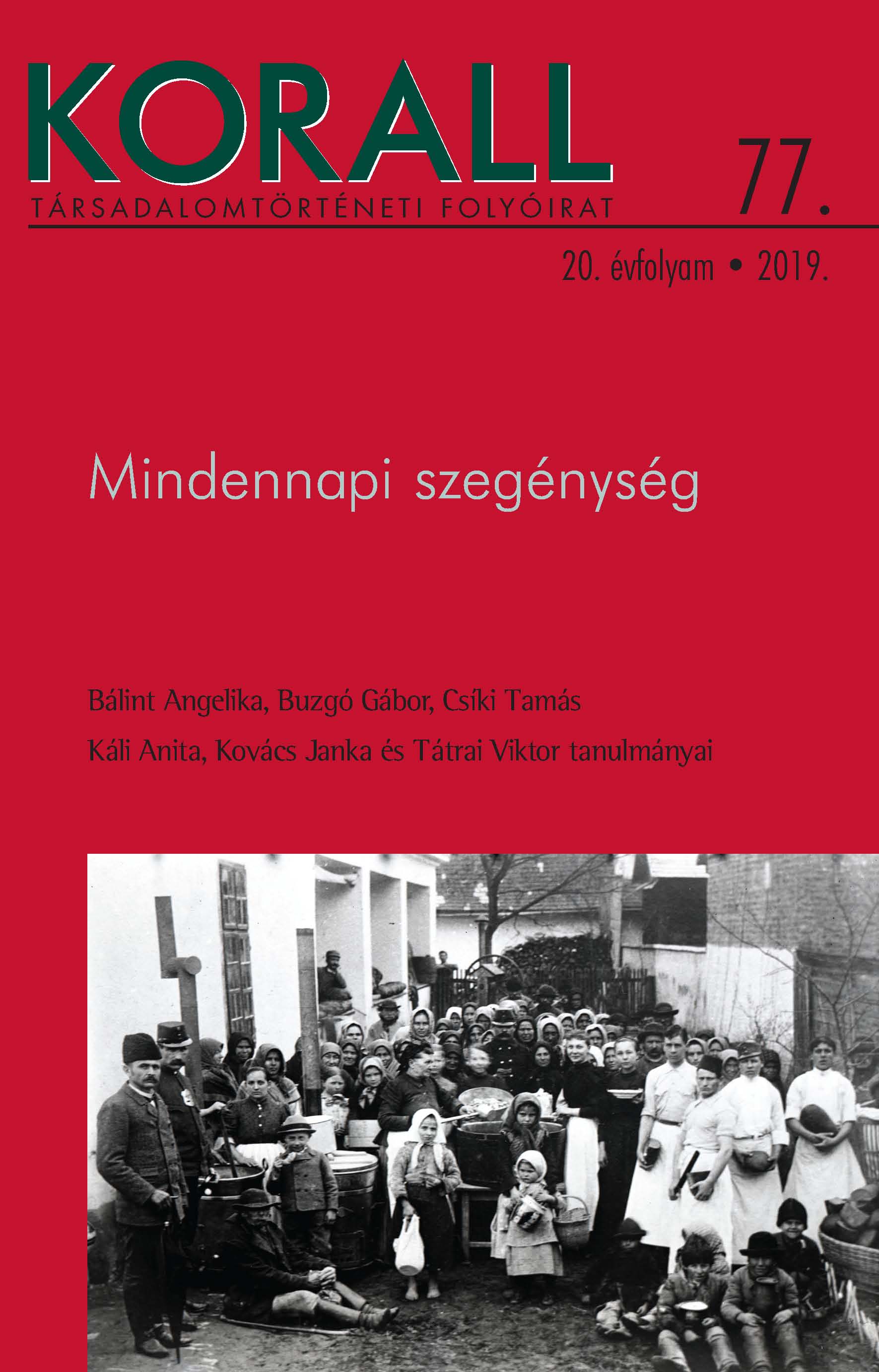A szegénységtől az éhínségig. Az agrárproletariátus az I. világháború idején
From Poverty to Destitution: Agrarian Proletariat during the First World War
Author(s): Tamás CsíkiSubject(s): Social history, Pre-WW I & WW I (1900 -1919)
Published by: KORALL Társadalomtörténeti Egyesület
Keywords: hungary;social historical activity;poverty;
Summary/Abstract: The study examines the condition of agricultural wage workers, the agrarian proletariat, during the First World War. The reasons for their pauperization were diverse: natural disasters, disadvantageous regional conditions for farming, overpopulation, and unemployment were among the many factors that negatively affected them even before the war. After 1914, however, the military mobilization of family breadwinners, the appropriation of draft animals, increasing prices, requisitions, and looting deepened their impoverishment.The increasing uncertainty of self-reliance called for state intervention, the governmental-political and local practice of which both demonstrate the macro- and microlevels of the poverty policy. Traditional poverty relief such as providing subsidised corn and seed was complemented by centralised food distribution and rationing. Flour rations were higher for agrarian workers than for urban consumers (maximum 400 grams/day in 1916) which was set at this level to preserve labour capacity and was based on the tenacious official categorization, which – based on consumption habits and demand – maintained that bread was the most important, even exclusive, type of food consumed by agrarian workers. State support granted to the families of enlisted soldiers was also used as a tool for labor coercion and discipline.The last part of the study presents collective protests (food riots) brought about by destitution, which can be used to grasp contemporary mentalities associated with the poor as a subculture. The perceived or real corruption of the authorities, feelings of social injustice (favoritism of the rich), and the increasingly assertive voice of military wives all played an important role both in the outrage caused by inflation, black market prices, and food shortages, and in violent actions such as looting shops or public unrest. Together, these constituted a collective experience and subsequent actions through communication, and a discourse unfolding in the streets, squares, and marketplaces of the city.
Journal: Korall - Társadalomtörténeti folyóirat
- Issue Year: 2019
- Issue No: 77
- Page Range: 67-90
- Page Count: 24
- Language: Hungarian

